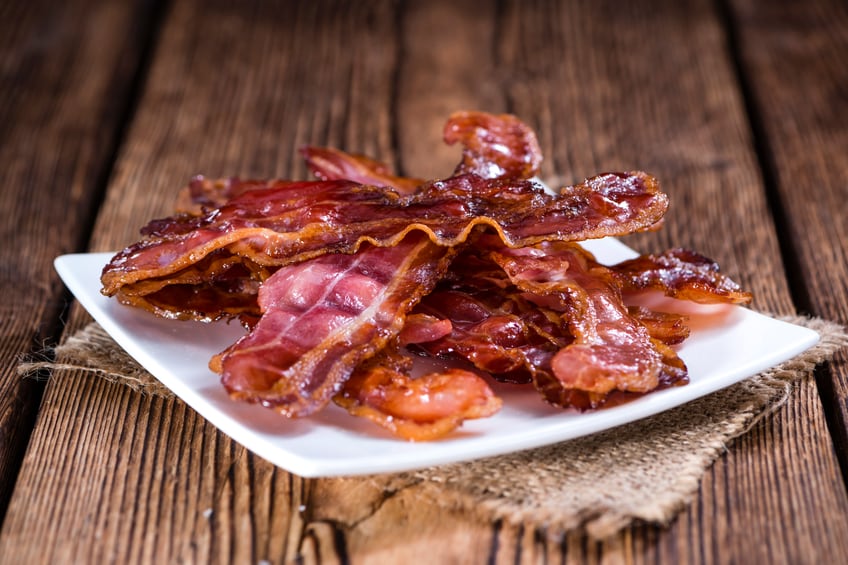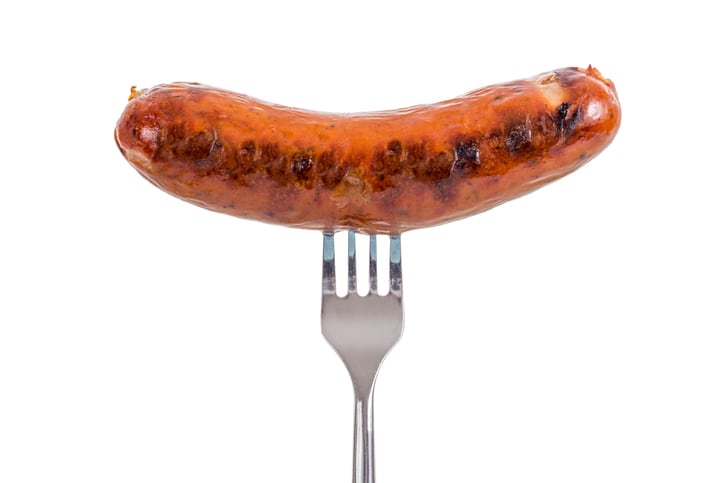A meta-analysis, published in the journal Nutrients, looked at existing peer-reviewed literature on the relationship between processed meat and the development of bowel, colon and rectal cancers.
The study’s authors, Dr Brian Green, Dr William Crowe and Professor Chris Elliot – all from the Institute for Global Food Security (IGFS) – initially examined all recent, English-language studies examining the potential link between processed meat and cancer risk.
The results were ‘inconclusive’, with around half the studies evidencing a connection between processed meat consumption and colorectal cancer (CRC).
However, when the researchers isolated studies that only tested consumption of processed meat containing sodium nitrate – a preservative that extends shelf life and enhances colour – evidence of a link to colorectal cancer ‘jumped’ from around half to 65%.
“When we looked at nitrite-containing processed meat in isolation – which is the first time this has been done in a comprehensive study – the results were much clearer,” explained Dr Crowe. “Almost two-thirds of studies found a link with cancer.”
WHO ‘blanket classification’ called into question
The study uncovers what the IGFS researchers describe as ‘evidence gaps’ between processed meat treated with nitrates and products that are nitrate-free, raising questions over the World Health Organization’s ‘blanket classification’ of processed meat as carcinogenic.
The WHO classified all processed meat as a carcinogen in 2015, with no reference to whether the product contained nitrates or not. This definition includes bacon, sausages and ham – some of which are produced without nitrates - as well as products like frankfurters, pepperoni and chorizo which typically contain nitrates.
Based on the results of their meta-study, the IGFS researchers now believe there is a need to define the health risk of both types of processed meat separately.
Co-author Professor Elliott, who carried out the UK Government’s inquiry into food safety after the horsemeat scandal, said this research brought ‘more clarity’ to what has been a confusing area for the food industry and the public.
“Because there have been conflicting claims in the scientific community and the media about which types of meat may be carcinogenic, this study couldn’t have come at a better time. It brings much-needed rigour and clarity and points the way for further research in this area,” he said.
Sausages back on the menu?
So, does this mean that people should stop eating meat containing nitrates? Or that we can eat high quantities of nitrate-free processed meats without an increased health risk?
Lead author Dr Green suggests not. “It’s important we eat a healthy, balanced diet in line with the government’s Eatwell Guide. The current Department of Health guidance advises the public to consume no more than 70g of red or processed meat per day.”
While ‘that remains the guidance’, Dr Green said further research into the link between diet and cancer risk was needed.
“We hope that future research investigating the link between diet and CRC will consider each type of meat individually rather than grouping them together. Our findings clearly show that not all processed meats, for example, carry the same level of risk.
“There is more research to be done before we can definitively prove causality regarding processed meat and cancer – there are so many variables when it comes to people’s diets. But based on our study, which we believe provides the most thorough review of the evidence on nitrites to date, what we can confidently say is that a strong link exists between nitrite-containing processed meat, such as frankfurters, and CRC.”
The IGFS team intends following up its evidence review with a pre-clinical study probing the effects of nitrite-containing meat on CRC.
Source
'A Review of the In Vivo Evidence Investigating the Role of Nitrite Exposure from Processed Meat Consumption in the Development of Colorectal Cancer'
Nutrients
DOI: https://doi.org/10.3390/nu11112673
Authors: William Crowe, Christopher Elliott and Brian Green



